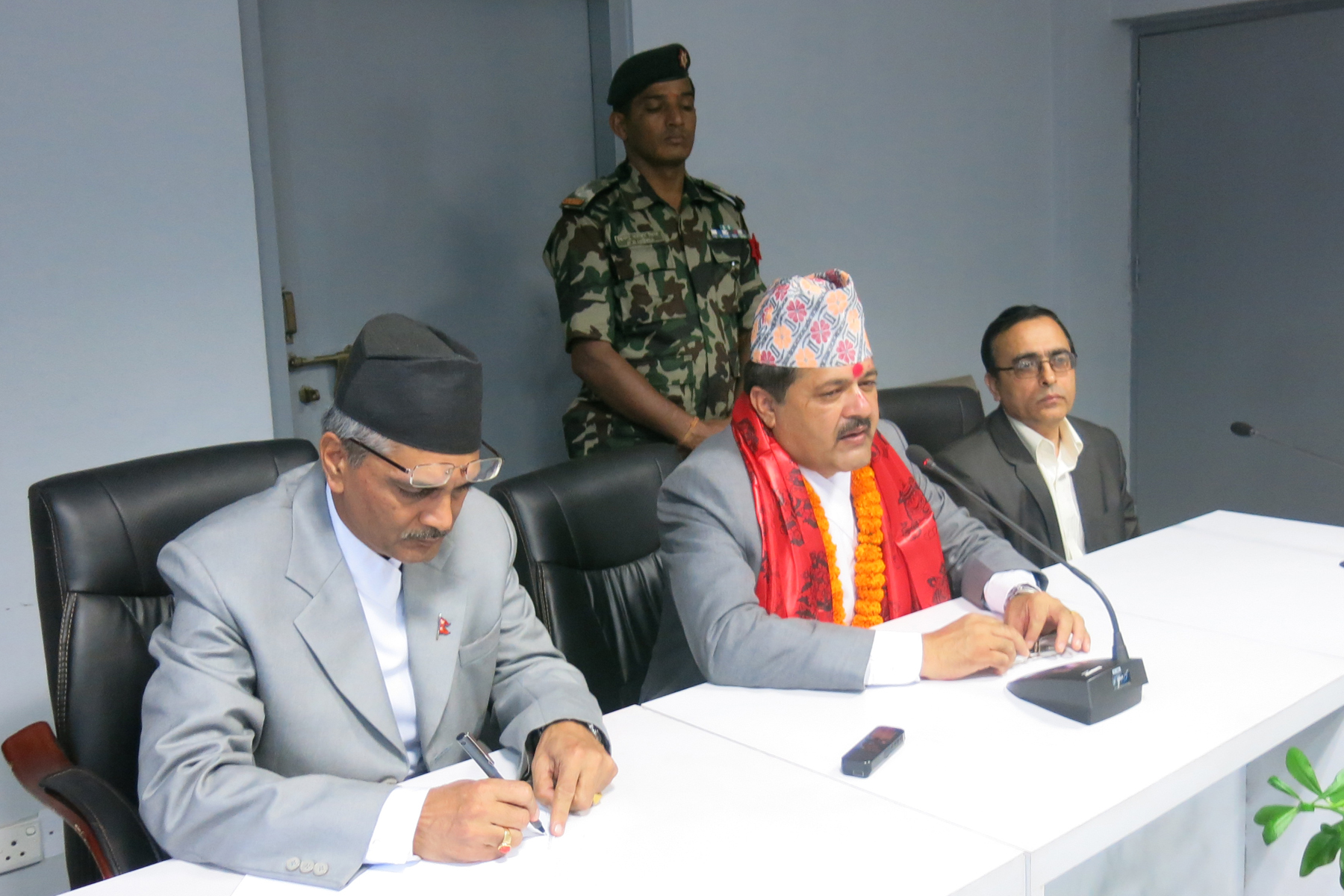Preparations on to draft 138 new laws
Kathmandu, October 18
The Ministry of Law, Justice and Parliamentary Affairs has begun work to enact 138 new laws and amend 315 existing laws to implement the new constitution.
Around 110 federal laws, 22 provincial laws and six laws related to local bodies will have to be enacted and around 315 existing laws will have to be amended to make them compatible with the new constitution, said Minister for Law, Justice and Parliamentary Affairs Agni Prasad Kharel at a press meet organised by the ministry today.
It will take minimum three years to draft and review all laws if there are no technical difficulties, said Bhesh Raj Sharma, secretary at the ministry.
The ministry will draft laws on priority basis. Laws related to provinces will be drafted later as it will take time because political disputes need to be resolved and constitutional requirements have to be met. This calls for settling some issues through a commission within one year.
“As it is not possible to draft all the laws simultaneously, the ministry will prioritise them and the most essential laws will be drafted first. Since, the process of making provinces will take time, the related laws will be drafted later,” Kharel said.
Stating that the government might need laws related to election of local bodies immediately, he said that the concerned laws would be drafted at the earliest by holding consultations with Nepal Law Commission, said Kharel.
The ministry has begun work by forming a taskforce under the secretary of the ministry.
Going by priority, the ministry will draft four laws related to citizenship certificate and law for Non–Resident Nepali Citizenship to allow NRNs dual citizenship. However, such citizens will not get political rights. A law related to keeping records of identities of Nepali citizens will also be drafted, according to the ministry.
The ministry has also put laws related to fundamental rights in its priority list. Those laws include issues related to protection of backward groups, punishment and compensation laws related to untouchability and discrimination, utilisation of property, making conversion punishable, privacy, unemployment allowance, access to health service, food security, right to housing, special opportunities for women and inclusion, social security, Dalit rights, labour rights and laws related to making basic education compulsory, said the ministry.
Other new laws in the list include procedural laws for sharing state power among the centre, provinces and local bodies, utilisation and equitable distribution of natural resources, laws related to perks of key position holders including president, vice-president, prime minister and ministers, speaker and deputy speaker, chief justice and justices of the Supreme Court, attorney general, members of commissions and key officials of other bodies, according to the ministry.
Laws related to economic transactions of centre, provinces and local bodies, state of emergency, constitutional council, impeachment and endorsement of treaties also fall in the priority list, according to the ministry’s initial study, said Secretary Sharma.






